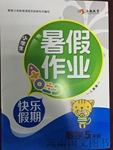题目内容
2.We had known for along time that flowers of different plants open and close at different time of day.Yet no one really understands why flowers open and close like this at special time.The question is not as simple as we might think,as recent experiments have shown.In one experiment,flowers were kept in constant (持续的)darkness.We might expect that the flowers,without any information about the time of the day,did not open as they usually do.In fact,they continue to open at their usual time.This shows that they have some special ways of knowing the time.Their sense(感觉) time does not depend on information from the outside world.It is inside them:a kind of"inner (内部的)clock".This discovery may not seem to be very important.However,it is later found that not just plants but animals have this"inner clock"which control(控制)the working of their bodies and influences their activities.Human beings,then,are also influenced by it.Whether we wish or not,it affects such things in our life as our need for sleep or need for food.41.Before the experiment arrived at a conclusion,people had thought that the flowers wouldA.
A.never open in constant darkness
B.change their usual time to open
C.open ahead of the time as they usually did
D.continue to open at usual time
42.The sense of time that flowers have is connected withC.
A.its age and size
B.light and temperature
C.a kind of strange power(力量)inside them
D.some unknown information from the outside world
43.What will happen if we make good use of the"inner clock"D
A.We'll need less sleep or food.
B.We'll be able to sleep as long as we wish to.
C.We'll be able to change our work time when necessary.
D.We'll have more energy to do our work better.
44.What's the Chinese meaning of the underlined word"affects"B
A.产生 B.影响
C.给予 D.依赖.
分析 本篇文章从对开花时间的研究引出植物和人类都有生物钟这个结论.
解答 41.A细节题.根据In one experiment,flowers were kept in constant (持续的)darkness.We might expect that the flowers,without any information about the time of the day,did not open as they usually do.在他们做的一个实验中,鲜花一直处于黑暗中,见不到阳光.我们可以预料,花朵在没有接受到任何关于时间的信息的时候,他们就不会像往常一样开放.可知答案为A.
42.C细节题.根据Their sense(感觉) time does not depend on information from the outside world.It is inside them:a kind of"inner (内部的)clock".他们的意识时间不依赖于外界的信息,而是在他们内部:一种"内在的时钟"可知答案为C.
43.D推断题.根据However,it is later found that not just plants but animals have this"inner clock"which control(控制)the working of their bodies and influences their activities.Human beings,then,are also influenced by it.可推断如果我们好好的利用生物钟,我们就有更多的精力工作,故选D项.
44.B猜词题.根据最后一句话提到Whether we wish or not,it affects such things in our life as our need for sleep or need for food.不管我们愿意还是不愿意,生物钟影响了我们生活中的一些事,比如我对睡眠的需要我们对食物的需求等,故选B项.
点评 本文是一个科教类阅读理解,题目涉及多道细节理解题,做题时结合原文和题目有针对性的找出相关语句进行仔细分析,结合选项选出正确答案.推理判断题也是要在抓住关键句子的基础上合理的分析才能得出正确答案,切忌胡乱猜测,一定要做到有理有据.

 永乾教育寒假作业快乐假期延边人民出版社系列答案
永乾教育寒假作业快乐假期延边人民出版社系列答案When his town announced plans to open an incinerator ( 焚化炉) to burn waste,Ercolini knew it would be (46)A for his students.Incinerators are huge heaters that burn all waste and poisonous material,leaving behind(47)D.You might think it is (48)C than sending waste to landfills.It is true landfills (49)D space,smell bad,and that poisonous materials can make underground drinking water(50)A to use.But incinerators have their own(51)B.Burning gives off poisonous gases into the air which can cause(52)C problems.People will have to wear a mask no matter(53)D they go.The smoke also causes pollution,and even(54)B the greenhouse effect.
Ercolini was worried about the(55)A of his community and felt it was his duty to(56)C them.He organized town hall meetings,and talked about how to reduce,reuse and recycle.(57)D,Ercolini has advocated the zero-waste movement,the (58)A of which is to reduce the waste sent to landfills and incinerators to the least possible amount.He has already(59)B plans for more than 50incinerators in many Italian cities.(60)C his efforts,there are more than one hundred zero-waste towns in Italy now!
| 41.A.Peace | B.Environment | C.Medicine | D.Literature |
| 42.A.teacher | B.farmer | C.trainer | D.gardener |
| 43.A.watching | B.reading | C.hearing | D.making |
| 44.A.fold | B.roll | C.tear | D.recycle |
| 45.A.coloured | B.reusable | C.thick | D.valuable |
| 46.A.harmful | B.necessary | C.suitable | D.convenient |
| 47.A.rock | B.sand | C.water | D.ash |
| 48.A.worse | B.harder | C.better | D.further |
| 49.A.add | B.fill in | C.create | D.take up |
| 50.A.unsafe | B.simple | C.regular | D.illegal |
| 51.A.difficulties | B.disadvantages | C.expectations | D.improvements |
| 52.A.heart | B.hearing | C.breathing | D.weight |
| 53.A.why | B.when | C.how | D.where |
| 54.A.reduces | B.worsens | C.suffers | D.measures |
| 55.A.health | B.development | C.justice | D.employment |
| 56.A.praise | B.support | C.educate | D.entertain |
| 57.A.Anyhow | B.However | C.Otherwise | D.Moreover |
| 58.A.goal | B.reason | C.truth | D.problem |
| 59.A.discussed | B.defeated | C.prepared | D.suggested |
| 60.A.Along with | B.Except for | C.Thanks to | D.Instead of. |